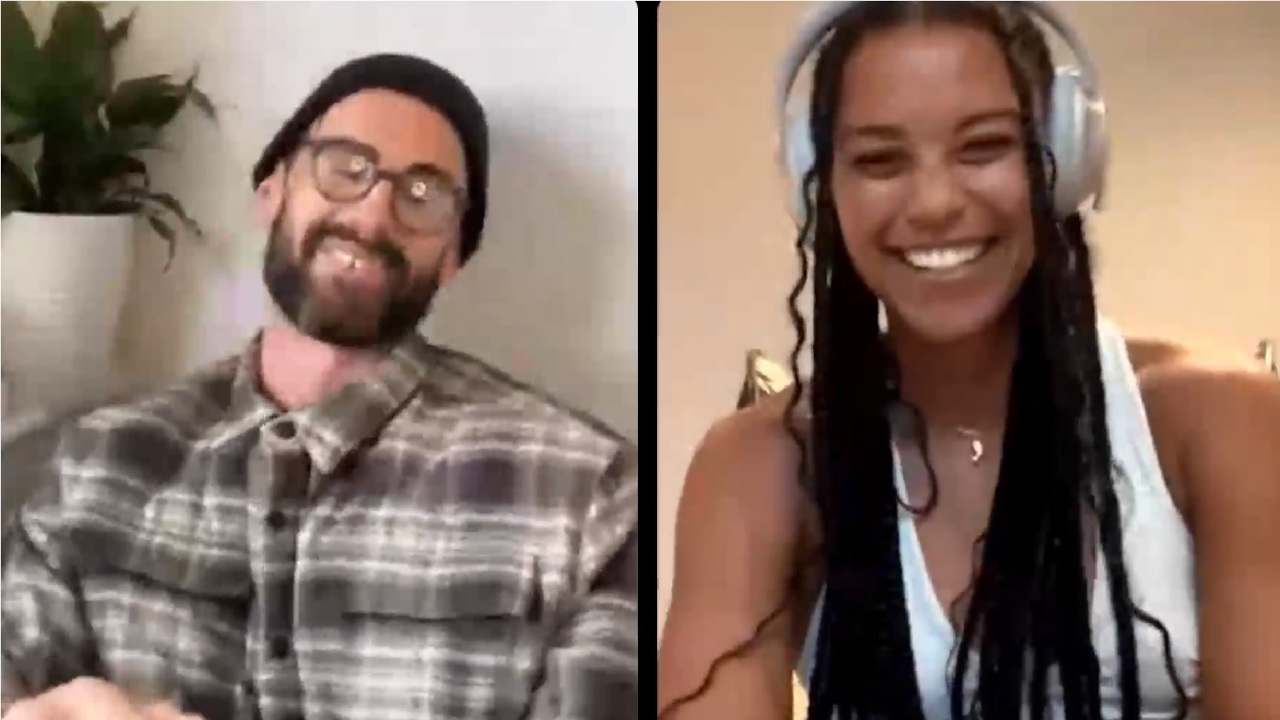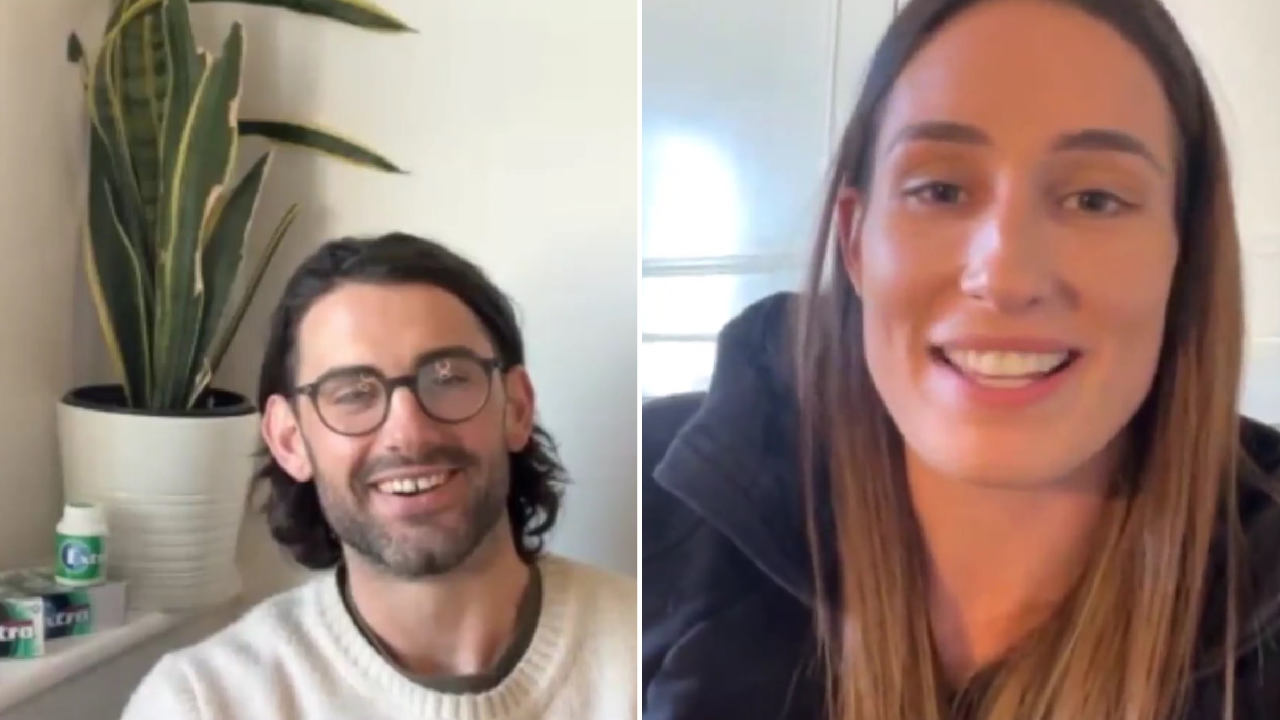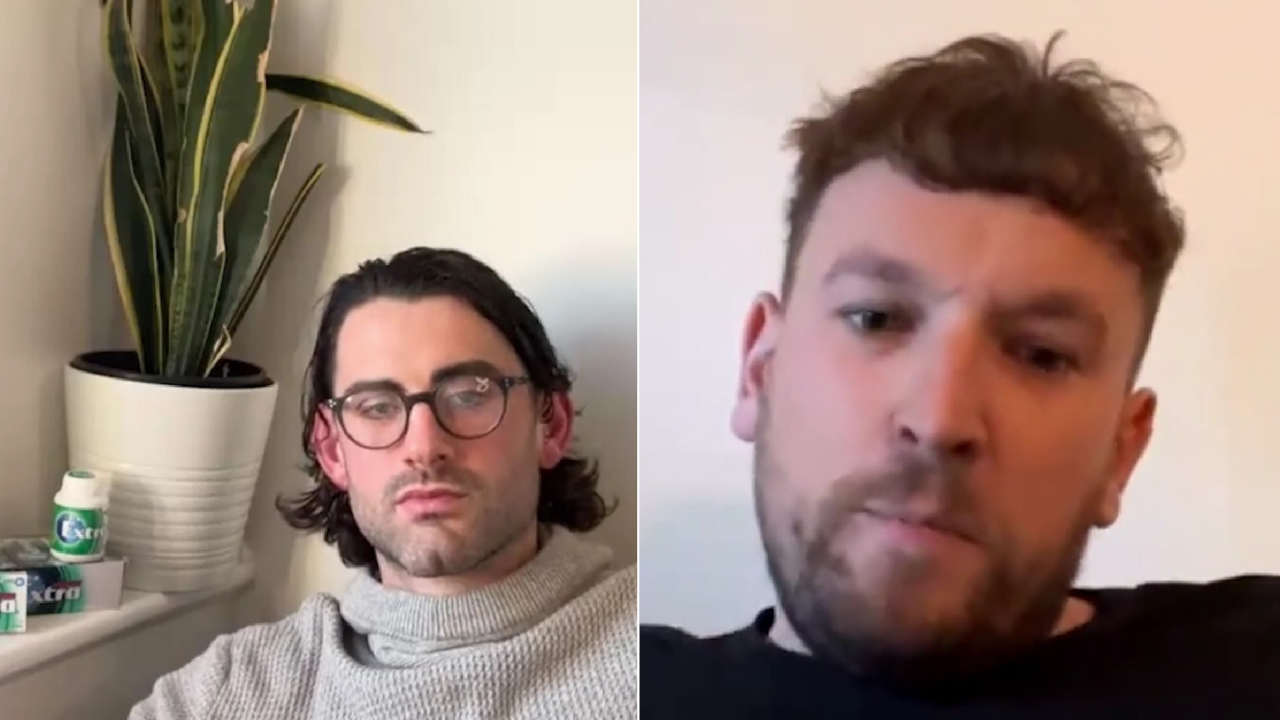The turning point
My family thought I would move back home after the rehab program. But I knew if I did that it would all be for nothing. I couldn’t go back into that environment, I’d fall back into the same situation. The doctors at therapy told me to move somewhere new.
Six months into the program they put me into a home associated with the clinic, to learn how to look after myself. I was allocated a caregiver, which was amazing. I had two caregivers during my time there and they became my new mum and dad.
One of my caregivers was a cyclist and runner. I’d started smoking heavily as things had gone downhill and he, too, had been a smoker.
He knew that playing sport was a way to help quit smoking, so he started taking me out for little runs. He also got me a mountain bike, which was really great. I loved riding and being active again.

For a couple of years it was all about trying to be healthy. Then he suggested we do this 10-kilometre city run that was held nearby every summer. That was really the start of me becoming a competitive athlete.
When I was 19, I started another apprenticeship, this time in a sports shop, which was something I enjoyed much more than the bakery.
There, I met a customer who was looking for young people to try out for a triathlon team. I told her how, as a youngster, I would watch Ironman and wonder how they could eat and drink as they raced. I thought Ironman was an amazing sport.
I ended up doing triathlon for a few years and competed in one Ironman race in Germany. I always had a bit of a weakness in swimming, but enjoyed being fit and participating in a competition like that.
support i’d never experienced
My life was starting to improve but I felt that I needed to leave Germany to start somewhere else totally new. I wanted to learn English and thought it might be nice to move to New Zealand for a while. It was about as far from Germany as I could possibly get!
I met a guy while racing and told him of my plans to go to New Zealand. He said, ‘I have a sister who lives there. You should message her’. So I did.
The woman said, ‘Great! Come over! Come stay with us!’ It turned out they lived on a mini-farm near Wanaka, I did some work around the place and settled in. It was the most amazing experience.
This lady opened her arms to me. She showed me around the area, took me everywhere. They were super-active people, really great climbers, so we shared a love for being outdoors.
She invited me to meet all her friends, who I quickly became close with. It felt great to be so warmly welcomed. They were all so supportive. I’d never experienced anything like it.
I’d always been around people who told me what I couldn’t or wasn’t allowed to do. But my new friends in New Zealand were the opposite.

They asked me what I wanted to do, I said I wanted to be an athlete and they said, ‘Ok, what do you need? Do you need a coach? What can we do to get you there?’
They helped me find a coach and I qualified for the Ironman in Hawaii, a lifelong dream of mine. Then they threw a big fundraiser for me, a Hawaiian-themed party. It was unreal.
After Hawaii, I wanted to do more. I felt I couldn’t stop. And, that’s how I go into multisport. Around Wanaka it’s a pretty big sport and I was introduced to people who thought I’d be good at it.
I started participating in teams and really liked it. I became more competitive and wanted to do it myself. Things fell into place.
This year was my third attempt to win the Coast to Coast. When it happened, it took quite a while to sink in, to really appreciate how far I’d come and what I’d achieved.
Nourishing the soul
Being an athlete was all I ever felt really passionate about. When I was a child, I dreamt I’d be a world champion one day. I lost touch with that passion, but it was the spark that got my life back on track.
It kept me going through my eating disorder. It helped me feel my body again. When you are sick like that, you don’t have any feelings, you don’t remember how your body really is, but sport gave that back to me.
Still, it’s amazing how things tend to come back to the family. When I finished the Coast to Coast, I shared something on Facebook about it and my brother must have shared it with my mother. They didn’t quite understand that it’s the biggest race you can do.
My mother said something like, ‘We’ve seen you won another race. Well done’. I tried to tell her that it’s a really big race, that it’s like when Germany won the World Cup in 2014. They couldn’t understand it.
To be fair, they’ve never seen racing like that. And I don’t want to be angry at them anymore. They must hurt like hell.
They still can’t talk about it, all those things that happened. They can’t talk about the past. I tried it a few years ago but it didn’t go down well.
It’s sad because it’s not how I want to carry on in this world. We can’t ignore sadness or things that are unfair. What I went through happens all the time, sexual abuse, child abuse … We can’t shut our eyes to it.
I’ve been through a lot, but I have a life now that I love. It’s taken a long time, but I’ve forgiven my family. They’ve tried their best.
You just have to forgive. You have to move ahead and enjoy the most important things in life, nourishing the soul, enjoying friends, enjoying love.
If you or someone you know needs help, please contact Lifeline or Beyond Blue.
More about: Mental health | New Zealand | Resilience | Women's Sport




 Load More
Load More